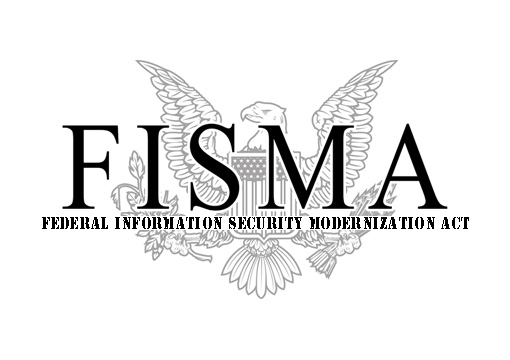Facilities Clearance (FCL) 101
FCL Facilities Clearance refers to a “Facility Clearance” issued by the Federal government for a specific location, building, or site. It is a form of security clearance that gives the government permission to store and use classified information within a specific location. In order to be granted a FCL Facilities Clearance, a building or site must meet certain security requirements, such as physical security, personnel security, and information systems security. The building or site must also be inspected by a government security team and found to be in compliance with federal security regulations. The FCL Facilities Clearance is a critical component of the Federal government’s efforts to protect classified information and ensure the security of its operations.
What are the requirements for a Facilities Clearance (FCL)?
To obtain a Facilities Clearance (FCL) for the Federal government, you will need to meet a number of requirements, including:
- Personnel security: All individuals who will have access to classified information must undergo a background investigation to determine their suitability for access.
- Physical security: The building or site must meet certain physical security standards, such as perimeter fencing, access control systems, and secure storage areas for classified materials.
- Information systems security: The building or site must have in place appropriate technical and administrative controls to ensure the secure processing, storage, and transmission of classified information.
- Security Management Program: The building or site must have a written security program that outlines policies and procedures for the protection of classified information.
- Security Inspection: A government security team will inspect the building or site to ensure that it meets the physical and technical security standards required for a FCL.
- Agreement to comply with security requirements: The building or site owner must agree to comply with all federal security requirements and regulations, including those related to personnel security, physical security, and information systems security.
Please note that these requirements are general and may vary based on the specific requirements of each federal agency. Additionally, these requirements are subject to change as the government updates its security regulations and standards.
You will be required to get a CAGE code
A CAGE code is a unique identifier assigned by the Defense Logistics Agency (DLA) to suppliers of goods and services to the U.S. federal government. It stands for “Commercial and Government Entity” code. The CAGE code is a five-character identifier that is used to identify companies and organizations that are doing business with the federal government. The CAGE code is used in various procurement and financial systems, including the Federal Procurement Data System, to ensure that the correct company is being paid for the goods and services they provide. In short, the CAGE code is used to identify and track the business transactions of companies with the U.S. federal government.
How can you apply for a CAGE Code?
To apply for a CAGE code, follow these steps:
- Determine eligibility: Make sure that your company is eligible to receive a CAGE code. Generally, companies that supply goods or services to the U.S. federal government are eligible.
- Register with the System for Award Management (SAM): SAM is the official U.S. government system that consolidates the capabilities of several legacy systems and requires all entities doing business with the federal government to register.
- Complete the CAGE Code Application: The CAGE code application can be completed online through the DLA’s website, and requires information about your company, including its name, address, and type of business.
- Provide required documentation: You may need to provide additional documentation, such as tax identification information and proof of incorporation, to complete the application process.
- Wait for approval: Once you have completed the application and submitted any required documentation, you will need to wait for approval from the DLA. Approval can take several weeks.
- Use the CAGE code: Once you have received your CAGE code, you can use it to conduct business with the U.S. federal government. Be sure to keep your CAGE code information up to date in the SAM database to ensure that you continue to receive payments and avoid any issues with future transactions.
Please go to https://cage.dla.mil/ to search, update or apply for a Cage Code.
You will need a FSO and a good start is to identify the right person
FSO stands for “Facility Security Officer.” In the context of security, an FSO is a person who is responsible for ensuring the physical and personnel security of a facility, typically a government or military facility. The FSO is responsible for developing and implementing security plans and procedures, conducting security briefings and awareness training, managing the issuance of security clearances, and overseeing the security activities of contractors and other personnel working in the facility.
In some organizations, the FSO may also be responsible for ensuring compliance with security regulations and guidelines, conducting security assessments and audits, and managing the overall security program. The role of the FSO is critical in ensuring the protection of classified information, personnel, and assets in a secure facility.
Who can be an FSO
Typically, a Facility Security Officer (FSO) is an employee of the organization that operates the secure facility and is responsible for ensuring its physical and personnel security. The FSO must be a U.S. citizen and possess a security clearance at the appropriate level, based on the type of classified information to be stored and processed in the facility.
In some cases, an outside contractor may be designated as the FSO for a facility, provided that the contractor has the necessary security clearance and expertise in physical and personnel security. The exact qualifications and requirements for an FSO can vary depending on the specific regulations and guidelines applicable to the facility.
In general, the FSO must have a strong understanding of security practices and regulations, as well as experience in managing security programs. The FSO must also be able to effectively communicate and coordinate with security personnel, contractors, and other stakeholders to ensure the effective implementation of security measures.
Understand NISPOM
NISPOM stands for “National Industrial Security Program Operating Manual.” It is a set of security guidelines and requirements for the protection of classified information in the possession of contractors working on behalf of the U.S. government. The NISPOM is the primary security regulation for contractors that hold security clearances and work with classified information in support of the U.S. Department of Defense (DoD) and other government agencies.
The NISPOM covers a wide range of security-related topics, including personnel security, physical security, information security, and security education and training. The NISPOM establishes standards for the handling, storage, and dissemination of classified information, and sets forth the responsibilities of contractors and their employees for maintaining the security of classified information.
The NISPOM is an important reference for contractors who work with classified information and is designed to ensure that the security of classified information is maintained at all times, both within and outside of secure facilities. All contractors and their employees who work with classified information are required to adhere to the requirements of the NISPOM, and to take the necessary steps to prevent the unauthorized disclosure of classified information.
Why NISPOM is required for FCL?
The National Industrial Security Program Operating Manual (NISPOM) is a set of security guidelines and requirements for contractors who hold security clearances and work with classified information on behalf of the U.S. government. The NISPOM is required for obtaining and maintaining a Federal Contractor License (FCL), which is a license issued by the U.S. government that allows contractors to access and work with classified information.
In order to obtain and maintain an FCL, contractors must comply with the requirements of the NISPOM, including personnel security, physical security, information security, and security education and training. The NISPOM establishes standards for the handling, storage, and dissemination of classified information, and sets forth the responsibilities of contractors and their employees for maintaining the security of classified information.
In addition to the NISPOM, contractors must also comply with other security regulations and guidelines, such as the Federal Acquisition Regulation (FAR) and the Defense Federal Acquisition Regulation Supplement (DFARS), to obtain and maintain an FCL.
In short, the NISPOM is a key component of the requirements for obtaining and maintaining an FCL, and is essential for ensuring the security of classified information in the hands of contractors who work with the U.S. government.
There’s more to it at GCA and what is it?
GCA stands for “Government Contracting Authority.” A Government Contracting Authority (GCA) is an agency or organization within the U.S. government that is authorized to award contracts and make purchasing decisions on behalf of the government. GCAs are responsible for the procurement of goods and services, and are typically responsible for ensuring that contracts are awarded in accordance with the Federal Acquisition Regulation (FAR) and other relevant laws and regulations.
Some examples of GCAs include the General Services Administration (GSA), the Department of Defense (DoD), and the Department of Homeland Security (DHS). Each GCA has its own procurement policies and procedures, but all must comply with the FAR and other federal laws and regulations.
GCAs play a critical role in ensuring that the U.S. government’s procurement activities are conducted in an efficient and effective manner, and that contracts are awarded in a fair and transparent manner. The GCAs are also responsible for ensuring that contractors comply with all applicable security requirements, including the National Industrial Security Program Operating Manual (NISPOM) and other relevant security regulations.
Now, understand why GCA is required for FCL
A Government Contracting Authority (GCA) is not directly required for obtaining a Federal Contractor License (FCL), but the GCA plays an important role in the FCL process. The FCL is a license issued by the U.S. government that allows contractors to access and work with classified information.
In order to obtain an FCL, contractors must meet the security requirements outlined in the National Industrial Security Program Operating Manual (NISPOM) and other relevant security regulations. The GCA is responsible for ensuring that contractors comply with these requirements when awarding contracts and making purchasing decisions on behalf of the government.
Before awarding a contract to a contractor, the GCA will typically conduct a security assessment of the contractor, including a review of the contractor’s security program, personnel security, physical security, and information security practices. The GCA will also verify that the contractor has a valid FCL and that the contractor is in compliance with the NISPOM and other relevant security regulations.
In short, the GCA plays a critical role in ensuring that contractors who hold FCLs and work with classified information comply with the security requirements outlined in the NISPOM and other relevant security regulations. This helps to ensure the security of classified information and to protect the interests of the U.S. government.
Ok, there’s more to it and what is DCSA
DCSA stands for “Defense Counterintelligence and Security Agency.” The Defense Counterintelligence and Security Agency (DCSA) is an agency within the U.S. Department of Defense (DoD) responsible for security and counterintelligence activities. The DCSA was established in 2020 and serves as the central security and counterintelligence organization for the DoD, providing security and counterintelligence support to a wide range of DoD activities, including acquisitions, research and development, and military operations.
The DCSA is responsible for a number of key security and counterintelligence functions, including:
- Personnel security: The DCSA is responsible for conducting background investigations and security clearance adjudications for DoD personnel, contractors, and other eligible individuals.
- Industrial security: The DCSA is responsible for overseeing the security of classified information in the hands of contractors who work with the DoD.
- Security education and training: The DCSA is responsible for providing security education and training to DoD personnel, contractors, and other eligible individuals.
- Counterintelligence: The DCSA is responsible for conducting counterintelligence activities to protect the DoD from foreign intelligence threats.
In short, the DCSA plays a critical role in ensuring the security and protection of classified information and other sensitive activities within the DoD. The DCSA works closely with other security and counterintelligence organizations within the U.S. government to ensure the security of the DoD and to protect the interests of the U.S. government.
Lastly, what is DCSA and how do you get around this
The Defense Counterintelligence and Security Agency (DCSA) is involved in the Federal Contractor License (FCL) process, but it is not a direct requirement for obtaining an FCL.
The FCL is a license issued by the U.S. government that allows contractors to access and work with classified information. To obtain an FCL, contractors must meet the security requirements outlined in the National Industrial Security Program Operating Manual (NISPOM) and other relevant security regulations.
The DCSA is responsible for conducting security clearance investigations and adjudications for DoD personnel and contractors who work with classified information. As part of the FCL process, contractors may be required to undergo a security clearance investigation and obtain a security clearance, which is conducted and adjudicated by the DCSA.
In addition to conducting security clearance investigations and adjudications, the DCSA is also responsible for overseeing the security of classified information in the hands of contractors. The DCSA works with contractors and the Government Contracting Authority (GCA) to ensure that contractors comply with the security requirements outlined in the NISPOM and other relevant security regulations.
In short, the DCSA plays an important role in ensuring the security of classified information and in the FCL process, but it is not a direct requirement for obtaining an FCL.
Understand NISS because you’ll run into this
NISS stands for “National Industrial Security System.” The National Industrial Security System (NISS) is a program established by the U.S. government to manage the security of classified information in the hands of contractors and other eligible organizations.
The NISS provides a framework for implementing the security requirements outlined in the National Industrial Security Program Operating Manual (NISPOM), which outlines the standards and procedures for protecting classified information. The NISS is administered by the Defense Counterintelligence and Security Agency (DCSA), and its goal is to ensure that contractors who work with classified information comply with the security requirements outlined in the NISPOM and other relevant security regulations.
The NISS includes a number of key components, including:
- Security clearances: The NISS provides for the granting of security clearances to eligible individuals, including contractors, who require access to classified information.
- Security reviews: The NISS includes security reviews of contractors to ensure that they comply with the security requirements outlined in the NISPOM and other relevant security regulations.
- Physical security: The NISS includes requirements for the physical protection of classified information, including the secure storage of classified information and the protection of classified information during transport.
- Information security: The NISS includes requirements for the protection of classified information through measures such as access controls, encryption, and incident reporting.
In short, the NISS provides a comprehensive framework for managing the security of classified information in the hands of contractors and other eligible organizations. The NISS works to ensure the security of classified information and to protect the interests of the U.S. government.
Be ready for this process and understand how everything interconnects. Is it worth it now?
The National Industrial Security System (NISS) is an important component of the Federal Contractor License (FCL) process. An FCL is a license issued by the U.S. government that allows contractors to access and work with classified information. To obtain an FCL, contractors must meet the security requirements outlined in the National Industrial Security Program Operating Manual (NISPOM) and other relevant security regulations.
The NISS provides a framework for implementing the security requirements outlined in the NISPOM. As such, compliance with the NISS is a requirement for obtaining an FCL. This includes, but is not limited to, the following:
- Security clearances: Contractors may be required to obtain security clearances for their employees who will have access to classified information.
- Security reviews: Contractors may be subject to security reviews to ensure that they are in compliance with the security requirements outlined in the NISPOM and other relevant security regulations.
- Physical security: Contractors must implement physical security measures to protect classified information, such as secure storage facilities and proper transport procedures.
- Information security: Contractors must implement information security measures to protect classified information, such as access controls, encryption, and incident reporting.
In short, compliance with the NISS is a key requirement for obtaining an FCL, as the NISS provides the framework for implementing the security requirements outlined in the NISPOM.
There’s more, what’s ICD?
ICD stands for “Information Security Doctrine.” ICD refers to a set of policies, procedures, and guidelines that govern the protection of information and information systems. These doctrines may include requirements for physical security, personnel security, and operational security, as well as technical security measures such as encryption and access controls.
The specific content of an ICD will vary depending on the organization and the types of information that need to be protected. For example, an ICD for a government agency might include additional requirements for the protection of classified information, while an ICD for a private company might focus more on the protection of sensitive business information.
The purpose of an ICD is to ensure the security of information and information systems, prevent unauthorized access or release of information, and ensure the confidentiality, integrity, and availability of information. An ICD helps organizations to identify potential security risks and to implement effective security measures to mitigate those risks.
In short, an ICD is a set of policies and procedures that govern the protection of information and information systems, and helps organizations to ensure the security of their information assets.
Lastly, before you continue, know who does the FCL audits and how you can prepare
The Federal Contractor License (FCL) is audited by the Defense Counterintelligence and Security Agency (DCSA). The DCSA is responsible for ensuring that contractors who work with classified information comply with the security requirements outlined in the National Industrial Security Program Operating Manual (NISPOM) and other relevant security regulations.
As part of this responsibility, the DCSA performs security reviews and assessments of contractors who hold an FCL. These reviews and assessments are designed to ensure that contractors are in compliance with the security requirements outlined in the NISPOM and other relevant security regulations, and to identify any potential security risks.
The DCSA also works with contractors to resolve any security issues that are identified during security reviews and assessments. In some cases, the DCSA may also revoke an FCL if a contractor is found to be in violation of security requirements or if the contractor’s security posture otherwise poses a threat to the protection of classified information.
In short, the DCSA is responsible for auditing FCLs and ensuring that contractors who work with classified information comply with the security requirements outlined in the NISPOM and other relevant security regulations.
Share This Article
How can I help?
With over 2+ decades of experience in the field of IT and compliance, I have successfully overseen multiple FedRAMP certifications and a dozen ATOs within the realms of the DOJ and DOD.
“Chue is a brilliant technologist who is a SME for everything with InfoSec and Federal Government Compliance. He is incredibly diligent, hard-working and is able to easily discuss complicated technical matters with both experts and beginners. His can-do, humble attitude made it a distinct pleasure to work with and learn from him.”
Other endorsements…
“Working with Chue has been an honor. He’s incredibly knowledgeable and always travels out of his way to offer assistance and guidance. He made sure our systems were completely secure and gave us the peace of mind to focus on our responsibilities without worry of interruption.
Outside of a work capacity, Chue has been a positive and motivating force and he has a keen ability to instill trust.”
Experts who understands the Federal landscape
Imagine a world where organizations enthusiastically embrace cutting-edge AI technology, harnessing its power to gain profound insights into high-risk scenarios and propelling themselves toward their core business objectives with confidence!
Here at FabricLake, we take the charge in revolutionizing federal compliance solutions! We’ve masterfully entwined the power of artificial intelligence into the very essence of our compliance processes. This astute integration doesn’t just optimize workflows; it paves the way for seamless task management and issue resolution, all while upholding the highest industry standards. In the heart of our Federal Compliance division, AI has seamlessly woven itself into the fabric of our operations, giving birth to RiskGuardian360 – a specialized application that unleashes the full potential of AI to steer us towards our compliance objectives with unwavering determination. Join us in embracing this cutting-edge technology and watch your compliance needs transform into opportunities for excellence!









